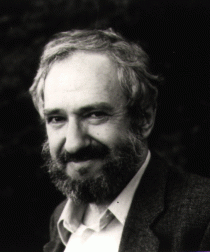I just came across this wonderful little excerpt on The Daily Papert that I want to share. In it, constructionist learning theorist Seymour Papert reflects on his reading of the book Tinkering Towards Utopia, which describes the ways that the educational system has been amazingly resilient in the face of attempts at centralized, planned reform for over a century.
“My first reaction to Tinkering Towards Utopia was adversarial. I am convinced that education will undergo the kind of megachange that came in the wake of technological and scientific developments in areas such as medicine. Yet as Koschmann pointed out in the introduction to this section, although Tyack and Cuban present their work as analysis of the past, “the implication is plain that the prospects for any technology, … leading to radical change in our educational institutions appear quite bleak” (Koschmann & Kolodner, this issue, p. 399). One of us, it seemed at first sight, has to be wrong.
Only at first sight. Working on this review brought me the intellectual bonus of a better understanding of my own position by making explicit a simple distinction that has long lurked unformulated in the shadows of my intuitions: “Reform” and “change” are not synonymous. Tyack and Cuban clinched my belief that the prospects really are indeed bleak for deep change coming from deliberate attempts to impose a specific new form on education. However, some changes, arguably the most important ones in social cultural spheres, come about by evolution rather than by deliberate design — by what I am inspired by Dan Dennett (1994) to call “Darwinian design.” (2) For example, the concept of learning disability entered School in a manner more akin to the way that memes invade cultures than to the conduct of an education reform movement; institutionalization from above followed the cultural movement.
Examples closer to my focus here are to be found in the unintended effects on the classroom of the presence of computers in homes. The title of an article by Cuban (1992), “Computers Meet Classroom: Classroom Wins,” refers to School’s defense mechanisms against reform being brought into the classroom by computers. School exerts less influence on what children do with home computers, and as the number of these reaches significant levels, we are beginning to observe changes in the relationship between teachers and students brought about not by a reform, but by the fact that the students have acquired a new kind of sophistication — not only about computers but also about ways to learn and methods of research (Papert, 1996a).
With the evolution-reform distinction in mind, I found myself reading Tinkering Towards Utopia more sympathetically. I could now appreciate the elucidation of mechanisms by which the system systematically frustrates reform without feeling obliged to defend my own intellectual commitments. In fact, I could learn from it — the shift from a stance of reform to a stance of evolution does not exclude active intervention, but the role of the change agent becomes less like the architect or builder and more like the plant- or animal breeder whose interventions take the form of influencing processes that have their own dynamic. Tinkering Towards Utopia is a gold mine of insights into the dynamic of School’s defense mechanisms.
Nevertheless, a sense of residual discomfort lasted until I managed to formulate yet another respect in which Tinkering Towards Utopia says less than I first thought: The mechanisms described in it are concomitants rather than causes of the stability of School. Making this distinction will lead me to suggest that Tyack and Cuban are blinded to a deeper layer of explanation by a theoretical stance that looks deeply into the sociological processes at play in education while treating as a black box the actual content of what is being taught and (supposedly) learned.”
Papert, S. (1995). “Why School Reform is Impossible.” The Journal of the Learning Sciences, 6(4), pp. 417-427.
This is a wonderful little reflection for many of us that share Papert’s sentiments around the potentials of technology; to empower young people, to help shift towards pedagogical approaches that position young people as creators and knowledgable actors, to make learning built on tinkering and experimentation as opposed to skill and drill. Often I find myself worrying about how to best effect change in a complicated system – Papert’s words here remind me that my own hopes are buttressed by larger cultural shifts around how technology is currently being used. People, young and old, are engaging in a democratization of cultural, social and political life through media in ways that would scarcely be recognized even a couple of decades ago . In other words, culture is at our backs here. Instead of having to think of ourselves as change-makers in the form of “architects” or “builders”, as Papert says, we can contribute to these larger cultural forces that are already unfolding, nudging them in fruitful directions. A good reminder for those of us that sometimes feel the weight of the world on our shoulders.





